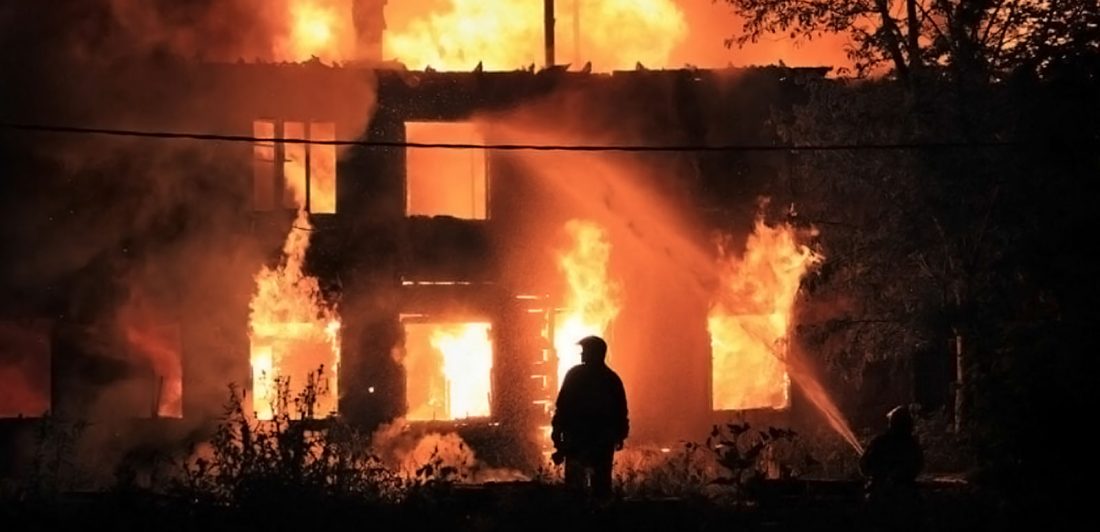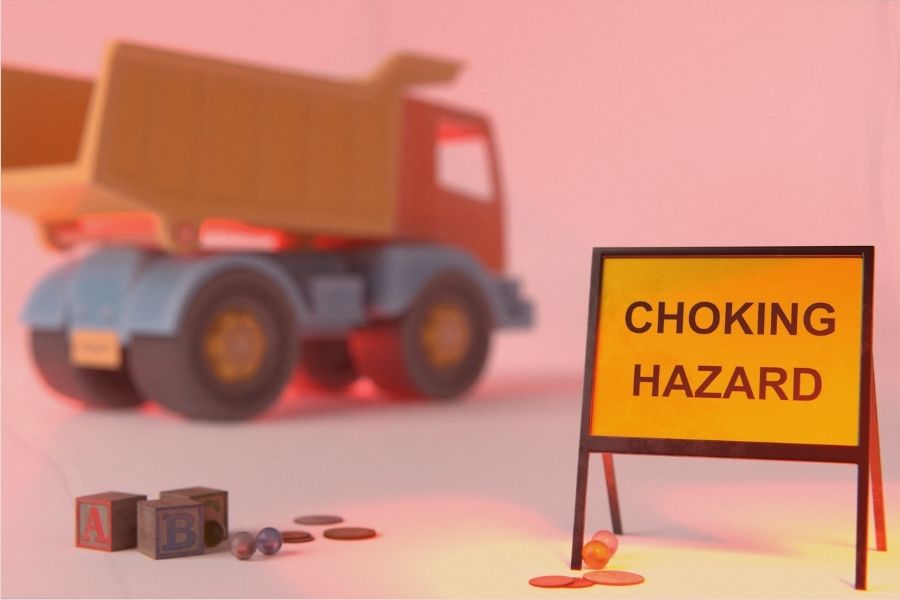An apartment fire attorney can help you navigate the aftermath of an apartment fire. Often, apartment fires happen when we least expect it. These unexpected events can leave tenants without homes, in addition to lost belongings. If a fire is severe and does enough damage, renters may have to come out of pocket to pay for temporary housing and replacing personal possessions. Fires can destroy entire buildings within minutes. However, unlike homeowners, who carry the full burden of a situation, renters may share the burden with their landlords. Landlords have certain responsibilities to uphold. If landlord negligence is found in the aftermath of a fire, you may be eligible to receive compensation.
What causes apartment fires?
While a fire tearing through your home is a scary thought for everyone, it is particularly scary for those in multi-unit residential buildings. Fires typically start when tenants are doing everyday activities. However, in some cases, the cause of a fire may be unseen. Common causes of apartment fires include:
- Electrical equipment
- Cooking and cooking equipment
- Portable heaters
- Smoking
- Candles
- Faulty wiring
- Old or faulty appliances
- Lighting
- Indoor decorations
What is landlord negligence?
Negligence occurs when someone behaves carelessly or without regard for the consequences of their actions. This negligence can come as an action, or a failure to act that leads to harm to another person through injury or financial loss.
Notably, a major benefit of renting over homeownership is that your landlord is responsible for maintaining the building. A good landlord is responsive and ensures that a rental property is safe and habitable. Renters, in general, are not on the hook for issues that arise with plumbing, electricity, roof leaks and heating and cooling.
When a landlord behaves in a way that puts tenants in direct harm or financial loss, tenants may be able to remedy their situations. The elements of landlord negligence include:
Duty
Landlords and property managers have a duty to keep a residence habitable and livable for renters.
Breach of duty
Tenants who file a lawsuit against a landlord have to prove that the landlord somehow breached their duty. This is typically done by a contract or rent violation. For example, if a tenant complains about a leaky roof, then the landlord has a duty to fix any and all leaks. If the landlord fails to do this, it is a breach of duty on the part of the landlord or property manager.
Causation
Causation, in the case of landlords and property owners, is a failure to act on a problem that makes the property unlivable. When this lack of action causes damage to the tenant or their property, a tenant may file a negligence lawsuit.
Damages
Damages can sometimes be hard to prove. A tenant must prove that the landlord’s failure to remedy a situation somehow led to harm. If the claim is successful, tenants can recoup compensatory, general, special, nominal and punitive damages.
How Can a Negligent Landlord be Liable for an Apartment Fire?
There are several situations that can ignite an apartment fire. Apartment managers and landlords are responsible for installing adequate fire safety systems. When this duty is not met, the landlord may be held liable for any resulting injuries or death.
Common reasons landlord negligence leads to apartment fires include:
- Faulty wiring
- Overcrowding
- Building code violations
- Lack of smoke detectors
- No fire extinguishers
- Heating equipment
- Smoking
- Defective smoke alarms
- Blocked fire exits
- Pest infestations
- Lack of fire alarms
The above negligent behaviors need to be addressed immediately. In some cases, an apartment fire can lead to explosions that can injure not just the tenants, but those living in close proximity. While a landlord may not be directly responsible for a cooking fire, the most leading cause of residential fires, they are responsible for providing the safety equipment to prevent burn injuries or death.
How Does Faulty Wiring Lead to Fires?
Faulty wiring and other electrical problems account for 6.3 percent of all residential fires and 11 percent of residential fire fatalities. The U.S. Fire Administration reports that Americans experience 25,900 electrical fires every year. In addition, electrical fires are responsible for the deaths of up 1,300 people each year. Electrical wires are some of the most preventable.
What causes faulty wiring?
The U.S. Fire Administration also reports that faulty wiring is the number one cause of electrical fires. Faulty wiring occurs for a number of reasons, including:
- Age. Buildings older than twenty years are at a higher risk of having faulty wiring.
- Rodents. Critters such as mice, rats, and squirrels find their way into homes and chew on cords.
- Roaches. A less common occurrence, however, roaches are attracted to insulation when they are on the hunt for food. Roaches also may be attracted to outlets, lighting fixtures, appliances and circuit breakers. When they dine on wiring insulation, your home can experience faulty wiring.
- Shoddy installation. Cutting corners to save time or money is common among home builders, including electricians.
- Overloading the electrical system. Older homes, with older electrical systems, may have a difficult time handling modern-day electrical demands. This can lead to damage in appliances, wiring and the breaker box.
In each of these situations, landlords or property owners are responsible for updating electrical wiring or maintaining it.
When is Outdated Building Wiring Dangerous?
As mentioned above, age is a huge indicator of wiring safety hazards. That is not to say that all older electrical systems are dangerous, however, there are commonalities in outdated wiring that may lead to fires.
Ungrounded wiring
It wasn’t until the 1960s that the electrical code began to require a ground rod and third circuit wire. Up until that point, the lack of this system was a nuisance and led to shocks, electrocutions and electrical fires. Grounding protects sensitive equipment from power surges. Renters in older homes with an ungrounded electrical system may experience the following:
- Flickering lights
- Shocks when touching a wall or lamp switch
- Frequent blow fuses (houses with ungrounded wiring usually have fuseboxes, not breaker panels)
- Overheated outlets
- Switches that can melt or ignite
- Power surges
Aluminum wiring
Electrical systems installed in the 1950s through the early 1970s may include aluminum wiring, a known hazard. These hazards can lead to overheating and a real possibility of one of them melting or bursting into flames.
Worn outlets
Sockets that can’t hold a plug are particularly dangerous for children and pets who might make contact with the exposed prongs. Not only that, but anything touching a prong, such as a curtain can ignite. The current code requires GFCI outlets in kitchens bathrooms, laundry rooms, and outside.
Exposed wires
Wires sticking out from walls or an unused electrical box are obviously dangerous. However, sometimes tenants may be unable to see them. These wires may protrude from an unfinished ceiling in the basement or the garage. In some cases, these wires are partially hidden by a wall—making them even more dangerous.
Any of these situations can lead to an apartment fire. Property managers and landlords have a duty to ensure that the homes they are renting to tenants are safe.
Knowing the signs of faulty wiring
Because faulty wiring is one of the five most common causes of electrical fires, tenants should be aware of what signs to look out for. There are several warning signs that can indicate a faulty wiring problem. Tenants and landlords should keep an eye out for the following:
- Dimming or flickering lights
- Frequently blown breakers or fuses
- Charred or darkened outlets and switches
- Hot ceiling fixtures or light switches
- Outlets that emit shocks
- Burning smells
Electrical wiring is a skill that requires knowledge and expertise. In an effort to cut costs, negligent landlords and property managers may attempt to address faulty wiring themselves. However, unless they have the proper electrical experience, they should hire qualified electricians to repair faulty wiring. In addition, landlords and property owners should do their part to inspect the quality and condition of the wires in their properties.
How is Apartment Overcrowding Dangerous?
Landlords have a responsibility to know who is living in an apartment. In addition, they need to ensure that apartment overcrowding concerns situations where the number of occupants living in an apartment building or a single unit exceeds the building’s design allowance. Typically, it involves the use of make-shift partitions to create additional rooms.
Overcrowding poses a significant problem for several reasons:
- Increases the amount of combustible fuel for a fire. This has the potential to change the behavior of fire and lead to a more intense and more aggressive fire.
- Increases the risk of ignition because of a greater number of electrical appliances and excessive use of appliances like washing machines and dryers. In addition, the use of multiple power boards to power this increase in appliance use and lack of space for heat dissipation can lead to fires.
- Obstructs the safe evacuation of occupants.
- Limits of access for firefighters can exacerbate the number of deaths and injuries.
- Compromises the fire protection systems, particularly smoke alarms.
The reason the amount of families or people who can live in a certain sized apartment or dorm is limited is that overcrowding can be a very dangerous fire hazard.
Landlord negligence: What is the Duty to Tenants?
In general, a landlord is required to keep their property habitable and safe. Landlords can be held responsible if:
- They could have prevented the fire; or
- There is evidence that the landlord knew there was a chance a fire could occur.
They owe this duty to not only tenants but also guests and potentially even the public—if common areas are accessible to guests and the public. However, in order to be held liable, a landlord must notice poor conditions or the conditions must’ve existed long enough that a reasonable landlord should have or would have noticed and corrected the condition.
There are typically three major reasons why a landlord can be held responsible in an apartment fire:
First, landlords have a responsibility to ensure that the apartment building is up to code. The chances of fire increase when a building is not up to code.
Second, sometimes landlords fail to install working smoke detectors. Federal, state and local levels of government have adopted the National Fire Protection Association (NFPA) 72 in the United States. The NFPA 72 specifies “the application, installation, location, performance, inspection, testing, and maintenance of fire alarm systems, fire warning equipment, and emergency warning equipment and their components.” Cities often adopt revisions of the code and make local fire codes specific to their governing authorities. If you believe you suffered injuries or lost a loved one because a negligent apartment owner, contact a Carlson Law Firm apartment fire lawyer.
And, lastly, another form of landlord negligence is when landlords attempt to control the temperature of units. This may leave tenants no choice but to resort to other methods of heating.
What to do if you are hurt in an apartment fire
Apartment fires can spread fast and can destroy the place a tenant calls home within a couple of hours. In addition, they can be deadly or lead to permanent injuries.
- Seek medical attention for injuries. If you were injured in a fire, the first thing you should do is seek medical help for your injuries.
- Salvage important documents or replace them. If you are allowed to return to your home after the fire, search for important documents such as your birth certificate, ID cards, renters insurance, lease agreement and any other documents you will need.
- Make a list. You should make a list of everything that was damaged. In addition, add details to the list that include the value of each item you lost.
- Copy of the fire inspector’s report. Obtaining a copy of the fire inspector’s report will help you determine how the fire started. It can be essential for insurance purposes and help your attorney prove landlord negligence in the event you need to file a lawsuit.
- Take pictures. Documenting the extent of your injuries and damage to your personal belongings can help you later if you need to file a lawsuit against a negligent landlord.
After seeking medical attention, contacting a qualified Apartment Fire Lawyer to discuss your options should be your next step. You may be able to file a lawsuit if your landlord or property managers to recover any damages you and your family suffered as a result of their negligence.
An Apartment Fire Lawyer at The Carlson Law Firm Can Help
Landlord negligence can lead to serious burn injuries. The Carlson Law Firm has more than 40 years of experience helping apartment fire burn injury victims. Contact our firm to schedule a free consultation with a Carlson Law Firm apartment fire lawyer. If you or a loved one were in an apartment fire, it is important to remember the insurance company is not on your side. While they may collect information about the fire and your injuries, it is the insurance adjuster’s job to minimize the value of the claim as much as possible.
Your or your loved one may be able to recover losses associated with an apartment fire. If an injury or death occurred, you may be able to file a claim to cover medical expenses or a wrongful death lawsuit. An apartment fire lawyer will be able to provide you with valuable assistance during this difficult time. Our team is available 24/7 and is ready to review your case today for free.




